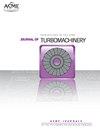ROBUST DESIGN OF HERRINGBONE GROOVED JOURNAL BEARINGS USING MULTI-OBJECTIVE OPTIMIZATION WITH ARTIFICIAL NEURAL NETWORKS
IF 3.1
3区 工程技术
Q3 ENGINEERING, MECHANICAL
引用次数: 0
Abstract
Abstract Herringbone grooved journal bearings (HGJBs) are widely used in micro-turbocompressor applications due to their high load-carrying capacity, low friction, and oil-free solution. However, the performance of these bearings is sensitive to manufacturing deviations, which can lead to significant variations in their performance and stability. In this study, design guidelines for robust design against manufacturing deviations of HGJB supported micro-turbocompressors are proposed. These guidelines are based on surrogate model-assisted multi-objective optimization using ensembles of artificial neural networks trained on a large dataset of rotor and bearing designs as well as operating conditions. The developed framework is then applied to a series of case studies representative of heat-pump and fuel-cell micro-turbomachines. To highlight the importance of rotor geometry and bearing aspect ratio in the robustness of HGJBs, two types of optimizations are performed: one focusing on optimizing the bearing geometry, and the other focusing on both the bearing and rotor geometries. The analysis of the Pareto fronts and Pareto optima of each type of optimization and case study allows for the derivation of design guidelines for the robust design of HGJB supported rotors. Results suggest that by following these guidelines, it is possible to significantly improve the robustness of herringbone grooved journal bearings against manufacturing deviations, resulting in stable operation. The best design achieved ±8 μm tolerance on the bearing clearance, and designs optimized for both rotor and bearing geometry outperformed those optimized for bearing geometry alone. This work successfully identifies guidelines for the robust design of herringbone grooved journal bearings in micro-turbocompressor applications, demonstrating the strength of surrogate model-assisted multi-objective optimization. It provides a valuable tool for engineers seeking to optimize the performance and reliability of these bearings.基于人工神经网络的人字槽滑动轴承多目标优化设计
摘要人字槽滑动轴承(hgjb)由于其高承载能力、低摩擦和无油解决方案而广泛应用于微型涡轮压气机应用中。然而,这些轴承的性能对制造偏差很敏感,这可能导致其性能和稳定性的显着变化。在本研究中,提出了针对HGJB支撑的微型涡轮压气机制造偏差的稳健设计准则。这些指导方针是基于代理模型辅助的多目标优化,使用在转子和轴承设计以及运行条件的大型数据集上训练的人工神经网络集合。然后将开发的框架应用于热泵和燃料电池微型涡轮发动机的一系列代表性案例研究。为了突出转子几何形状和轴承长径比在hgjb鲁棒性中的重要性,进行了两种类型的优化:一种侧重于优化轴承几何形状,另一种侧重于轴承和转子几何形状。对每种类型的优化和案例研究的帕累托前沿和帕累托最优的分析允许衍生出HGJB支撑转子稳健设计的设计指南。结果表明,通过遵循这些指导方针,可以显着提高人字形槽滑动轴承对制造偏差的稳健性,从而实现稳定的运行。最佳设计在轴承间隙上实现了±8 μm的公差,并且针对转子和轴承几何形状进行了优化的设计优于仅针对轴承几何形状进行了优化的设计。这项工作成功地确定了微型涡轮压气机应用中人字槽滑动轴承稳健设计的指导方针,展示了代理模型辅助多目标优化的强度。它为工程师寻求优化这些轴承的性能和可靠性提供了一个有价值的工具。
本文章由计算机程序翻译,如有差异,请以英文原文为准。
求助全文
约1分钟内获得全文
求助全文
来源期刊
CiteScore
4.70
自引率
11.80%
发文量
168
审稿时长
9 months
期刊介绍:
The Journal of Turbomachinery publishes archival-quality, peer-reviewed technical papers that advance the state-of-the-art of turbomachinery technology related to gas turbine engines. The broad scope of the subject matter includes the fluid dynamics, heat transfer, and aeromechanics technology associated with the design, analysis, modeling, testing, and performance of turbomachinery. Emphasis is placed on gas-path technologies associated with axial compressors, centrifugal compressors, and turbines.
Topics: Aerodynamic design, analysis, and test of compressor and turbine blading; Compressor stall, surge, and operability issues; Heat transfer phenomena and film cooling design, analysis, and testing in turbines; Aeromechanical instabilities; Computational fluid dynamics (CFD) applied to turbomachinery, boundary layer development, measurement techniques, and cavity and leaking flows.

 求助内容:
求助内容: 应助结果提醒方式:
应助结果提醒方式:


